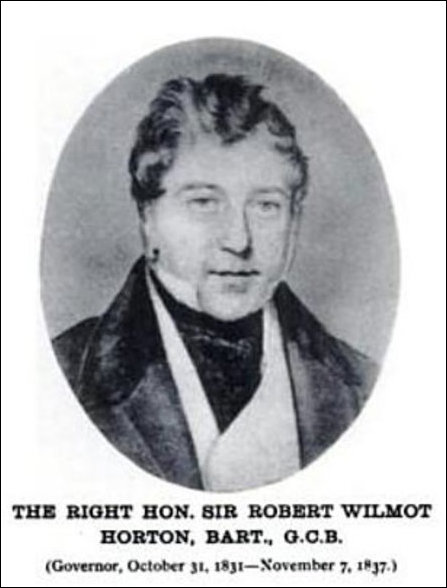
JVP always denied Eezham Tamils inalienable self-determination: Anthropology scholar

Sinhala leftists need careful perusal of Lenins definition of Right to Self-Determination
|
|
Know the Etymology: 120
Place Name of the Day: Thursday, 01 December 2016 Amicci-kuḷam, Āṇṭāṉ-kuḷamஅமிச்சி குளம், ஆண்டான் குளம்Amicci-kuḷam, Āṇṭāṉ-kuḷam Amicci+kuḷam Āṇṭāṉ+kuḷam The tank built or maintained by obligatory labour The tank of the lord or ruler
Amicci is a variation of Amińci or Amańci in Tamil, meaning obligatory labour or unpaid labour. The terms were in use in Tamil inscriptions since c. 900 CE, especially in the context of obligatory work for the maintenance of tanks. The terms listed as Dravidian (DED 159), derived from the Tamil/ Dravidian verb root Amai, meaning 'be abide' (DED 161). The word form Amaińcāṉ means a man in obligation to perform a duty (see box above and usage examples below).
Related to the meaning unpaid work, the word Amińci is sometimes used to mean 'no money', as in the phrase 'Amińci cheque' for an unpaid cheque (Putumaippittaṉ, Nicamum Niṉaippum, 1945). Amańci meaning obligatory work: "இன் நிலத்துக்கு ஏருமமஞ்சியு [ஏரும் அமஞ்சியும்] இவனேய் செய்துகொண்டு" (c.900 CE, South Indian Inscriptions, xii, 114) "iṉṉilattuku ērumamańciyum (ērum amańciyum) ivanēy ceytu koṇṭu" (Tamil inscription, c. 900 CE, SII, xii, 114)
Let this person undertake engaging tillers and obligatory workers for this land
இன்னிலம் உழு குடிகள் சென்னீரமஞ்சி உள்ளிட்ட ஏரியமஞ்சி செய்யக்கடவரல்லதாக (Tamil inscription, 1058 CE., SII, vii, 947) "iṉṉilam uḻu kuṭikal ceṉṉīramańci uḷḷiṭṭa ēriyamańci ceyyakkaṭavarallatāka" (Tamil inscription, 1058 CE., SII, vii, 947)
Let the people who till this land do not have the obligation to do compulsory work on the maintenance of the tank including the maintenance of the canals
"Āḷamańci ērikkuḻi veṭṭa" (Tamil, inscription, 1374 CE, SII, I, 72)
Let the people obliged to do the tank-work deepen the tank
"எச்சோற்று கூற்று நெல் வெட்டி அமஞ்சி என்று காட்டவும்" (1120 CE, SII, vii, 542) "Eccōṟṟu kūṟṟu vel veṭṭi amańci eṉṟu kāṭṭavum" (1120 CE, SII, vii, 542)
Husking and polishing paddy for the day meals (El-cōṟu) of labourers goes as unaccounted obligatory work
"திருவிளக்கினு நெய் கொடுப்பானமைஞ்ஞான் [கொடுப்பான் அமைஞ்ஞான்] நாராயணதேவன் (1010 CE, Trivancore Archaeological Series, ii, p 42-44) "Tiruviḷakiṉu ney koṭuppāṉamaińńāṉ nārāyaṇa tēvaṉ" (TAS, II, p. 42-44)
Nārayaṇa Tēvaṉ who is obliged to give ghee (free of cost) to the sacred lamp
Āṇṭāṉ, meaning lord, master, ruler etc. in Tamil, corresponds to the verb root Āḷ in Tamil/ Dravidian meaning to rule, reign over etc., and to its verb forms Āṇṭa and Āṇṭu (DED 5157). Sinhala diction has a cognate, Āṇṭuva, meaning government, ruling or reign. Amicci-kuḷam is the name of an abandoned tank as well as a place, located south of Koṇṭacci in the Musali division of Mannar district (One Inch Sheet). A place name of comparison in Tamil Nadu is Amińcik-karai in Chennai. Āṇṭāṉ-kuḷam is found as tank name and place name in the following divisions: Manthai West division of Mannar district; Karaithuraippattu division of Mullaiththeevu district; Trincomalee Town and Gravets division of Trincomalee district. Some related place names: Āṇḍān-kanniya: probably, Āṇṭāṉ-kēṇi or Āṇṯāṉ-kāṇi; Kalpitti, Puttalam Notes on obligatory labour in the island: The practice of compelled labour in the island was known Rājakārya in Sinhala and Irāca-kāriyam or Irāca-ūḻiyam in Tamil. It was mainly practised in work related to irrigation. The early colonial rulers made use of this native tradition for constructing roads, canals and buildings. The compelled labour was abolished in British Ceylon in the 1830s when Sir R.W. Horton was the governor (1831-1837), as a part of the reforms recommended by the Royal Commission of Lieutenant Colonel Colebrooke and C.H. Cameron. However, private proprietors and temples were exempted from the law. State enterprises also found loopholes in the law to enact a Road Ordinance to compel people between 18 and 55 years old to work in the laying of roads or to pay tax. It took some more years for the complete abolishment under a new Charter of Justice.  Sir Robert Wilmot Horton, the Governor of Ceylon (1831 - 1837), who abolished compelled labour at the advice of the Royal Commission of Colebrooke and Cameron. It took few more decades for the United States of America to abolish slavery. Horton was a kinsman of the famous English poet Lord Byron and was one of the executors of his Will. His predecessor Sir Edward Barnes extensively used compelled labour for the construction of roads and his personal mansion in Colombo. [Image courtesy: Arnold Wright, Twentieth Century Impressions of Ceylon, London, 1907]
Revised: Thursday, 01 December 2016, 21:15 First published: Wednesday, 14 January 2009, 03:03
Previous columns:
|
Latest 15 Reports
21.09.24 16:12
 JVP always denied Eezham Tamils inalienable self-determination: Anthropology scholar
18.09.24 21:30
 Sinhala leftists need careful perusal of Lenins definition of Right to Self-Determination |
||||||
|
Reproduction of this news item is allowed when used without
any alterations to the contents and the source, TamilNet, is mentioned |
||||||||
|
News | Features | Opinion | Palaka'ni | Photo Features | TN Transcription
Web feeds | Feedback | Home | About us |